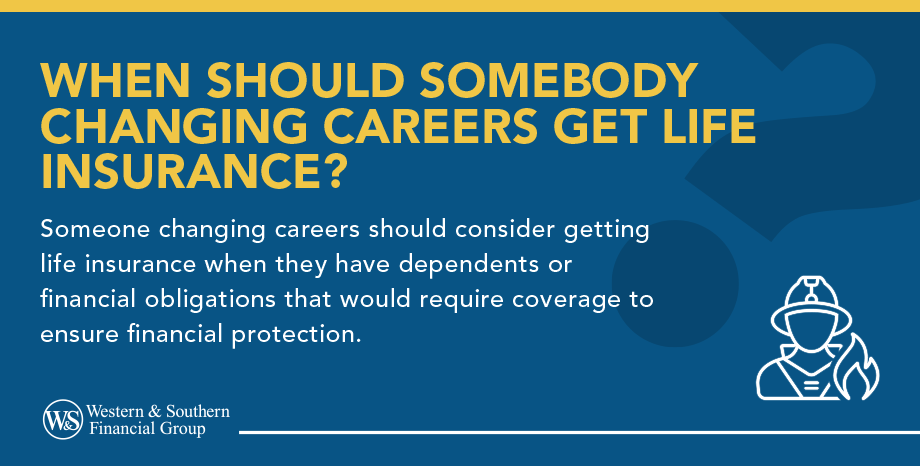Table of Contents
Table of Contents


Key Takeaways
- Review your employer's life insurance; it may offer minimal coverage, which could be insufficient for dependents or debts.
- Understand your current policy to evaluate new job offers; your coverage may not transfer.
- Convertible plans may let you change your employer-offered policy into a permanent one you own, but check the costs first.
- Evaluate your new job's life insurance benefits to see if they meet your needs, especially if you have a spouse or children.
- Consider buying your life insurance policy to control your coverage and supplement any offered by your employer.
If you're in the middle of a career change, life insurance might be the furthest thing from your mind, but it's an important consideration. If you were previously covered by your former employer, then you could think about how this major life change impacts you and your loved ones.
Checking your policy and making sure you are properly covered is important — especially if you have loved ones who depend on your income. Switching your career may mean leaving your existing life insurance policy behind, but learning more about your options could help you make the best choice.
Check Your Coverage First
Check your life insurance coverage before changing careers, as many employers offer life insurance as part of their employee benefits package. While your employer pays the premiums, these policies usually offer a minimal amount of coverage. Someone working full-time with average benefits, for example, may receive a life insurance policy for about $15,000 — just enough to cover the cost of a basic funeral.
That might be fine if you're single with no dependents and have no debt that would need to be repaid after your death, but you'll likely need more coverage if you have family members who depend on your income or might be responsible for your debts should you die. Understand your existing policy to guide your evaluation of new job offers as your current policy may not be applicable.
You might also have the option of converting your existing life insurance policy. Convertible plans allow you to change an existing policy offered by an employer into a cash value or permanent policy that you pay for and own. This isn't always the best option because you may be required to pay to convert the plan. If you're in good health, consider getting your own policy after you change careers — it gives you control no matter how many times you change jobs. Then you could consider any life insurance coverage offered by your new employer as a supplement to your own.
Consider Your Life Insurance Needs
If you've made a recent career change, evaluate your new job's benefits. Do they include life insurance? If so, what does the policy look like? Does it offer enough coverage to meet your needs? If you're married or have children, you may want to consider something that offers a larger benefit. And, of course, if your new job doesn't come with an employer-sponsored policy, it is even more important to consider purchasing your own life insurance policy. Your employer's policy's death benefit may only cover your salary, excluding bonuses or retirement contributions.
So, make sure the actual payout of your total coverage will cover your family's needs should something happen to you. In addition, if you rely on your company's life insurance policy now, but leave your job due to a health complication in the future, that coverage may end. Then, getting additional life insurance could be costly or even impossible because of your declining health. Considering an additional policy now could help protect against this scenario.
The Bottom Line
When should you get life insurance? Life insurance is an important consideration after a career change and could become especially important if you are the primary breadwinner in your family. Purchasing your own life insurance policy could help give you peace of mind and the freedom to provide for your family on your own terms.
Maintain your life insurance as you change careers, ensuring continuous protection. Get a Free Life Insurance Quote

























